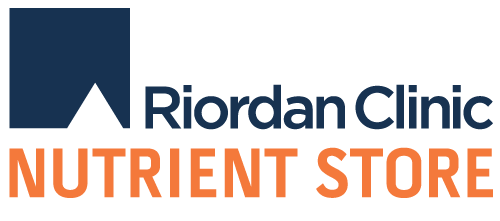Do Vitamins Really Work?
Posted by Charles T. Hinshaw Jr., M.D. on Apr 30th 2016
At times, one may read studies published in daily newspapers and news magazines that recommend eating a balanced diet, which will satisfy all of your nutritional needs. This mantra is also repeated by many practicing physicians and dietitians, and appears to be supported in scientific publications. In the following paragraphs you will find studies supporting the need for supplements.
First, articles attempting to persuade you that supplements do not help, and that you should rely solely on a balanced diet usually have several flaws. These are clinical studies based on whether or not the occurrence rate of a set of signs and symptoms is altered over a period of time, often using a commercial multi-vitamin containing one RDA (Recommended Dietary Allowance) of vitamins and minerals, some of which may not be the best absorbed or the most effective form of the vitamin. Actual levels of the nutrients are not measured. The results of these studies are often down-played when positive effects are shown. For example, experts in an editorial published in the Annals of Internal Medicine opined that the results of two recently published clinical trials offered almost no benefit in preventing chronic disease, “and they should be avoided.” One of these studies, using Centrum Silver as a multivitamin, produced a “modestly lower risk of cancer among 150,000 men.” Do these results show that we should avoid supplements and rely on a balanced diet? You be the judge.
Realistically, most of us will not get adequate nutrition just by eating a balanced diet. Since the 1950s, the nutrient content of commercially available food, within supermarkets and restaurants, has plunged. Long-time consultant at the Riordan Clinic, Dr. Donald Davis, published a research paper in the Journal of the American College of Nutrition, with nutritional data from 1950 and 1999, showing that 43 different fruits and vegetables showed “reliable declines” in calcium, phosphorous, iron, riboflavin (Vitamin B2) and Vitamin C. These declines average more than 20 percent. Nuts, particularly almonds, are often considered to be an excellent source of vitamins (do not try to use natural almonds as your source of Vitamin E). You would have to eat 2,000 almonds daily to get a recommended amount of Vitamin E, and that would amount to 16,000 calories and 1,300 grams of fat, according to Dr. Julian Whitaker.
A clinical study from the University of California at Berkley published in the Nutrition Journal reported on a study of 278 people who took a variety of vitamins, minerals, herbs and other supplements for at least 20 years. This group was compared to another group who took no supplements at all.
Results: those taking supplements were 73% more likely to have a healthy blood sugar, 39% more likely to have a healthy blood pressure, much better levels for every indicator of good heart health including homocysteine, C-reactive protein, triglycerides and HDL (good cholesterol). “USDA studies show that 98% of Americans over 70 years of age are deficient in Vitamin D. Vitamins do work and are needed, as shown below.
According to the USDA (US Department of Agriculture), when vitamin and mineral levels were measured in broad study of US citizens, 90% of us are deficient in these essential nutrients:
(1) Vitamin A
(2) Vitamin B6
(3) Vitamin B12
(4) Vitamin D
(5) Calcium
(6) Fiber
(7) Folate
(8) Iron
(9) Magnesium
(10) Potassium
(11) Zinc
How critical are essential nutrients?
In an article published in Health Hunters in January 2016, the interaction of all body systems with two to 10 different vitamins were shown. The number of coordinating vitamins for each system ranged from two to 10: all are necessary for maximum performance of each system, and additional supporting actions will be discovered for years to come. You may want to consult this article in order to better understand which organ systems may be causing symptoms related to vitamin deficiencies. This is not to lessen the importance of each and every single vitamin alone, since complete absence of a single vitamin may result in death, as shown in a study of rats published by the Riordan Clinic (although we cannot do this experiment on humans, rats are a good alternate).
Which vitamins should one measure, and if deficient take as a dietary supplement?
Dr. Riordan always taught that the vitamin(s) you should take are the one(s) in which you are deficient. We should consider all essential nutrients, including 60 essential minerals, 16 essential vitamins, 10 essential amino acids, and two essential fatty acids, 99 in all. With few exceptions, all of these essentials are measured at the BioCenter Laboratory at the Riordan Clinic. Although our physicians at the Riordan Clinic are extremely well-versed in nutrition, it is our recommendation to do a complete panel of nutrients in order to best discover the deficiencies and excesses of each colearner (patient). Several panels of tests, with slight variations, are available and may be best selected in consultation with your physician.
Many of the references in this article were first called to my attention in a recent sales publication by Julian Whitaker, MD. Thank you, Dr. Whitaker.

